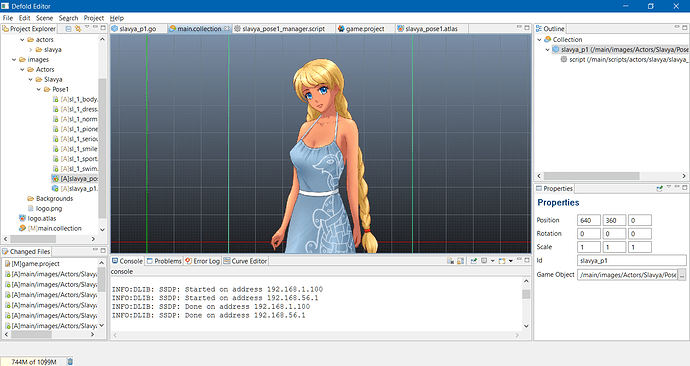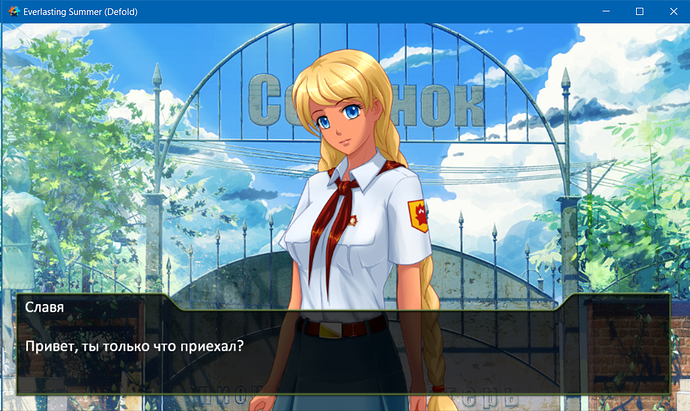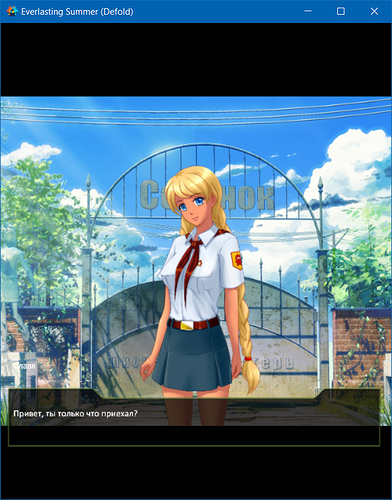I love this game and it very basic from programing perspective. So I decided to port it on Defold for learning and provide HTML5 version of it to people.
Unity version is pretty big -1.2GiB for 300MiB assets is strange, and packed version for android 800MiB is strange. Maybe I do not understand it fully, but when I use them as static, it grow enormous and load 2GiB of memory on start. Moved to resources and resource file is 700MiB and bigger. And I do not like to stretch images - they pretty and all athmosphere of game will be broken.
So, I started with Defold and currently I’m pretty happy with it.
And in ten lines of code able to change emotion and outfit of actress.
local OUTFIT_DRESS = 1
local OUTFIT_SPORT = 2
local OUTFIT_SWIM = 3
local OUTFIT_PIONEER = 4
go.property("outfit_no", 4 )
local OUTFIT_NAMES = {"outfit_dress", "outfit_sport", "outfit_swim", "outfit_pioneer"}
local current_outfit = OUTFIT_PIONEER
function init(self)
msg.post("#outfit", "play_animation", {id=hash(OUTFIT_NAMES[current_outfit])})
end
If Defold will be so fine in future, it will be my primary game engine. Currently I’m in search of good one and Defold looking promising.



